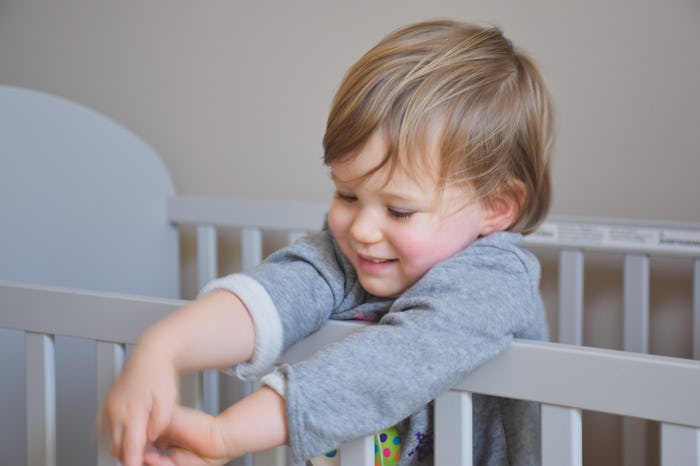For a new parent, a sleeping baby is one of the most beautiful sights in the world. In fact, there's only one thing possibly more beautiful than a sleeping baby — a bed. A large bed in a room all your own. Knowing when to transition baby to the nursery will help you figure out just how soon this dream bed can become a reality.
In general, most infants actually benefit from a period of co-sleeping. According to the American Academy of Pediatrics (AAP), in order to decrease the risk of sleep hazards such as SIDS, infants should sleep in the same room as their parents on a separate sleep surface for the first six months of life. In fact, the parent's bedroom is recommended for children up to 1 year of age if possible. What does this mean for the infant's move to a nursery?
As with so many parenting decisions, the best time for your infant to move to a nursery will vary from family to family. In general, health concerns will be the first thing to consider. According to New Kids Center, infants with no health problems might sleep in their own nursery when they are only 4 to 6 weeks old. On the other hand, kids who are at a higher risk of SIDS may need to stay in the parental bedroom well past the 6 month mark. Discussing your child's individual needs for sleep safety with a pediatrician is a good call for any parent.
Additional factors figure in to your child's nursery transition time as well, particularly your own needs. As noted in She Knows, some parents find it impossible to sleep with a baby in the same room, as they become intensely attuned to the child's every sound. This is also a good reason to push for an earlier transition to the nursery, provided your child is healthy enough to sleep alone for long periods. Getting enough sleep (whenever possible) is important for new parents, and you will no not do yourself, or your baby, any favors by limiting sleep still more. Whether your baby moves out after six weeks or over a year of time in your bedroom, regaining that quiet space is something you are sure to appreciate.
